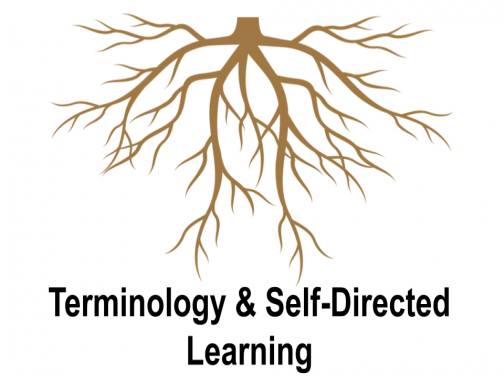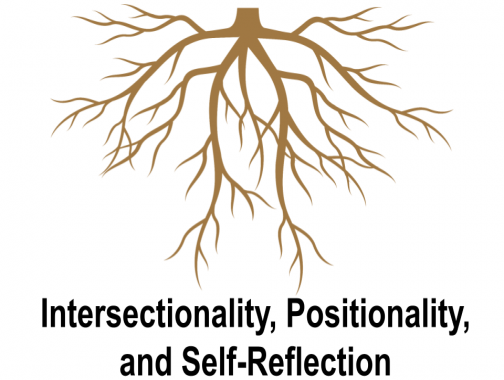This Resource Hub has been developed with the invaluable labour, thoughts, and reflections of the members of the UTSC Campus Curriculum Review Working Circle. There are many others, not named, who have also contributed to this working set of resources for the UTSC community to support our collective goal of Inspiring Inclusive Excellence. As shared in the of the Working Circle report, a collective responsibility to learn is the foundation of the curriculum review's recommended actions (Giidaakunadaad, 2022).

This hub is intended to serve as a companion to the main curriculum review report. A direct response to recommended action 2.1, it is designed to be an easily navigable site offering equity-based, inclusive, anti-racist, and anti-colonial pedagogical resources for faculty, librarians, staff, and teaching assistants (TAs). At this particular phase of the resource hub's development, the content has been curated with course-related preparation in mind, acknowledging that teaching and learning happen in varied spaces across UTSC. In navigating the site, it is important to recognize that there will be individuals coming to these resources with diverse perspectives and experiences and at different stages of engagement with this work. Each one of us at UTSC has a role to play in learning, unlearning, rethinking, and reconsidering ways of knowing, and what it means to foster inclusive excellence.
Navigating the Resource Hub
The Resource Hub is organized in five overarching sections which follow key aspects of the campus curriculum review process. It is not intended to be a comprehensive site, but rather a starting point for self-reflection and learning, elements which have been at the foundation of the review over the last two years. It is also intended to be a living hub, and we welcome input from the campus community on its current content, recommendations for additional materials, as well as suggestions for its future development.
Each section of the Resource Hub is designed to invite the reader into a reflective journey that is both intellectual and personal. In some sections, the resources and materials are organized into the categories of Curriculum & Content and Pedagogy & Form, followed by short annotated bibliographies. Frequently Asked Questions (FAQs) host information related to professional development opportunities at the University of Toronto, links to resources from other post-secondary institutions, and videos and podcasts.
The site includes dedicated pages on resources for STEM, the Humanities and Social Sciences, support for Universal Design for Learning, Africentric Epistemologies, and Indigenous Epistemologies. The content of the main sections often overlaps and speaks to the intersectional positioning of resources for the hub.
Reflection, Pacing, and Learning
The Resource Hub has been designed to offer multiple entry points for engaging in anti-racist, anti-colonial, and equity-based work and aims to support you at whatever point you are in your learning. You may opt to engage with the material by reading, reflecting, and sharing your ideas with your immediate colleagues, within your home department, with a liaison librarian, with an Education Developer from the Centre for Teaching and Learning, arranging a consultation with the Equity, Diversity and Inclusion Office (EDIO), or beginning on your own, using the prompts and supports contained throughout the Resource Hub.
We recommend beginning with Terminology & Self-Directed Learning and exploring Professional Development Opportunities that include a range of flexible learning initiatives for expanding or developing your understanding of equity-based and anti-racist work. The site also includes models of inclusive teaching at other universities.
At UTSC, the Centre for Teaching and Learning (CTL) supports educators with comprehensive resources for course development and assessment, and pedagogical practice. If you have access to Quercus, please navigate to CTL's “Best & Promising Practices in Teaching and Learning” section for dedicated resources on syllabus design, student engagement, anti-racist pedagogy, universal design for learning, fostering a community of inquiry, and more.
- "Placing disAbility Front and Center in EDI Studies" (2020) by Hyun Uk Kim in Teaching through Challenges for Equity, Diversity, and Inclusion (EDI)
- Is Everyone Really Equal?: An Introduction to Key Concepts in Social Justice Education (2017) by Ozlem Sensoy and Robin DiAngelo
- Inclusive Teaching: Strategies for Promoting Equity in the College Classroom (2022) by Kelly A. Hogan and Viji Sathy
- Teaching through Challenges for Equity, Diversity, and Inclusion (EDI) (2020) Edited by Stephanie L. Burrell Storms, Sarah K. Donovan, and Theodora P. Williams
- "How to Make Your Teaching More Inclusive: Advice Guide" (2019) by Viji Sathy and Kelly A. Hogan in The Chronicle in Higher Education
- "Decolonizing Antiracism" (2012) by Bonita Lawrence and Enakshi Dua in Decolonization: Indigeneity, Education & Society
Developing Inclusive Syllabi
University of Toronto
- The UTSC's Centre for Teaching and Learning and the University of Toronto's Centre for Teaching Support and Innovation offer resources and one on one consultations with an Educational Developer for syllabus and assessment design. Similarly, the Centre for Teaching Support & Innovation (CTSI) offers a consultation with a staff member to assist with all aspects of course design with "resources to support instructors in their efforts to ensure equal access and to design and deliver course s with equity, diversity and inclusion in mind."
- An important starting place can be the inclusion of equity-based syllabus statements. Institutional syllabus statements are available on the Course Information System and can be customized by individual instructors. Sample equity-based syllabus statements are available from the University of Toronto Mississauga’s Equity, Diversity and Inclusion Office, created by the Department of Visual Studies.
Models from Other Universities
- University of British Columbia
- University of Manitoba
- University of Ottawa
- University of Michigan
- Whitman College
- Tufts University
- "Switching from Bloom to the Medicine Wheel: Creating Learning Outcomes that Support Indigenous Ways of Knowing in Post-Secondary Education" (2016) appears in Intercultural Education by Associate Professor Marcella LaFever at the University of the Fraser Valley. Based on her review of research "by Indigenous educators, this paper suggests a four-domain framework [based on the four quadrants of the Medicine Wheel] for developing course outcome statements that will serve all students, with a focus on better supporting the educational empowerment of Indigenous students" (p. 409).
-
Writing a Course Syllabus is a section from the Council of Ontario Universities' Accessible Campus website, developed to support educators in creating inclusive and accessible learning environments for all learners.
-
"Samples" is a selection of syllabi from the University of Manitoba's Centre for the Advancement of Teaching and Learning.
-
"How Do I Create an Inclusive Syllabus?", developed by the Center for the Enhancement of Learning and Teaching (CELT) at Tufts University, presents a series of reflective and guiding questions as part of the equation for developing more equitable and diverse teaching and learning spaces. Related Readings: The Accessible Syllabus Template is a downloadable PDF document from CELT that may be opened and modified using Microsoft Word. "Inclusive Teaching" is a downloadable PDF document from CELT examining how instructors "Generally" approach syllabus design and "Some Considerations or Enhancements" which can create a more transparent, engaging, and student-centered one.
-
"UDL Syllabus" is part of the Course Design section developed by UDL on Campus: Universal Design for Learning in Higher Education
-
"Designing an Inclusive Course" is a video from the University of Michigan College of Literature, Science, and the Arts (Video Length: 1:41)
-
Moving the Needle is a podcast on developing an inclusive syllabus, from the Faculty Center for Teaching and Learning at the University of Maryland, Baltimore.
-
The Diversity and Inclusiveness Syllabus Collection was developed by the American Philosophical Association (APA) as a resource for creating more "diverse and inclusive courses" and features an extensive list of syllabi submitted by APA members.
Developed by the Sub-Circle on Institutional Resources and Related Supports, Appendix A of the Campus Curriculum Review report provides a series of guiding questions when developing or revising institutional resources. The resource is organized into four sections; for each section, a sample question will provide some context. The full resource can be found on pp. 85-88 and downloaded from the online PDF version of the Campus Curriculum Review report.
1. General Information: Type of Resource/Location/ Audience: Who is the ideal, imagined audience for this resource?
2. Representation: Whose voices, norms, values, and perspectives are privileged in these resources and whose are not?
3. Knowledge: To what extent does this resource draw on knowledge from equity-deserving groups, including histories, voices, and cultures?
a. Positionality: What sources are considered legitimate and does the assessment of legitimacy consider how knowledge is transferred in different communities?
b. Difficult dialogues: Does this resource support the need for difficult dialogues on ableism and for the growth of social justice?
c. Binaries: Does the perspective of this resource deny the legitimacy of other languages, perspectives, and sources of knowledge?
d. Intersectionality: Is there a diverse range of perspectives, knowledge and experience represented? Is a collaborative interdisciplinary approach taken?
4. Language, Images, and Art: Do language, images, and art used in this resource acknowledge Indigenous ways of knowing and knowledge systems, Black knowledges, racialized perspectives, international and/or intercultural perspectives?
- Teaching Sensitive Materials, developed by UTSC's Centre for Teaching and Learning (CTL) is an excellent starting point for inclusive course development. On page 4, "Some Questions for Instructors to Consider," outlines ten self-reflective questions when instructors are preparing to teach a course to encourage a greater sense of inclusion of voices and perspectives that have been historically marginalized in the university.
- Developing Courses is a section within the Council of Ontario Universities' Accessible Campus resource section. It is created to foreground accessibility during course planning to ensure the material reaches as many learners as possible.
- "What Are Inclusive and Equitable Teaching Practices?" explores "a variety of approaches and strategies tied to inclusive and equitable teaching strategies," developed by the Center for the Enhancement of Learning and Teaching at Tufts University.
Creating Respectful Classroom Spaces
The University of Toronto Scarborough
Published in 2020, Navigating Microaggressions in the Classroom was developed by the Centre for Teaching and Learning (CTL) as a clear guide offering examples of microaggressions, creating an inclusive anti-racist classroom, how to respond to microaggressions, and where to seek support in addressing them. Related Viewing: Watch "How Microaggressions are Like Mosquito Bites"
Teaching Sensitive Materials is an excellent reference from the (CTL) which poses crucial questions regarding the approach and potential ethics of teaching materials and content that could be potentially triggering or traumatic for students or other faculty members. Related Reading: "How Can I Better Support Students and their Learning When Challenging Moments Arise?" from the Center for the Enhancement of Learning and Teaching at Tufts University.
The University of Toronto Mississauga
Negin Dahya is an Assistant Professor in the Institute of Communication, Culture, Information and Technology at the University of Toronto Mississauga. As part of her equity statement on her graduate syllabus, she outlined a series of guidelines for "what respectful participation in this class might include":
Think before you speak
- Consider what language you are using to discuss sensitive issues, and in relation to the range of visible and invisible identities present in the classroom;
Recognize your own position
- Be aware about your own positions of privilege and oppression and engage accordingly; own your voice and position in ways that are healthy and open;
Speak up or step back
- If you are someone who is always/often speaking up, take a step back to create space for others; if you rarely speak, try to push yourself to share your thoughts in either small groups or the larger group;
Listen
- People really underestimate the value of active listening; listen to your peers and instructors, take notes, take care, and think about what is being said;
Engage in constructive feedback and inquiry
- While it is easy to fall to the side of being critical in academic work and especially in graduate school, it is much more productive to identify strengths in the readings, subjects, or ideas (of peers or in research or theory) and work to build on those ideas, even if in sometimes divergent or juxtaposing directions;
Ask good questions
- Be thoughtful and ask good questions about the work, subject matter at hand, and its relevance;
- If you don't understand a perspective, ask, think, and write about it. Avoid getting defensive or dismissive about views you don't understand or don't initially agree with.
- Used with permission from Negin Dahya, Institute of Communication, Culture, Information, and Technology, University of Toronto Mississauga
Models from Other Universities
The University of British Columbia
UBC's Centre for Teaching, Learning and Technology (CTLT) recognizes that difficult conversations often happen when "ideas, identities and perspectives are challenged...to make space for new understandings and relationships." Here is a brief collection of resources on navigating difficult conversations and microaggressions with the goal of developing respectful classroom spaces:
- Microaggressions in the Classroom
- What if we were to talk about it? Engaging controversial topics in the classroom
- What I Learned in Class Today: Aboriginal Issues in the Classroom
University of Michigan
The Center for Teaching for Research on Teaching (CRLT) has numerous resources to support teaching and learning. Two resources are pertinent to developing respectful classroom spaces while navigating courageous and, sometimes, difficult conversations:
- Guidelines for Discussing Difficult or High-Stakes Topics
- Setting the Tone for an Inclusive Classroom: Some Practices to Consider
Vanderbilt University
"Strategies for Creating Accessible Learning Environments" is a subsection within the Center for Teaching's resource on creating accessible learning environments. This section explains how "faculty have an essential role to play in making courses accessible and creating a climate of equity and inclusion" and is organized into the following categories:
- Communication with students
- Physical spaces of learning
- Course materials
- Classroom climate
- Out of class activities
- "Creating an Inclusive Learning Community to Better Serve Minority Students" (2021) by Phoebe S. Lin & Lynnes N. Kennette in the Journal of Effective Teaching in Higher Education.
- "Equity and Inclusion in the Classroom: Classroom Guidelines" from the Equity and Inclusion Office and Centre for Teaching, Learning, and Technology at the University of British Columbia.
- "How Do I Create an Inclusive Learning Environment?" explores the importance of creating, and maintaining an inclusive learning environment for the students, developed by the Center for the Enhancement of Learning and Teaching at Tufts University. This particular resource points out that "[m]uch of the work of creating an inclusive learning environment begins before the start of the class. This is when you set the tone for the course and build a space that is welcoming for all students."
- "A Guide to Responding to Microaggressions" was developed by Women in Engineering, a program "providing a welcoming and supportive environment for students" in The Grainger College of Engineering at the University of Illinois Urbana-Champaign. A downloadable PDF guide on how microaggressions operate in relation to race, gender, sexual orientation, and religion is available; additionally, a downloadable PDF guide with prompts for responding to microaggressions is also available.
- "Recognizing and Responding to Microaggressions" is a downloadable PDF guide from the Department of Psychiatry and Behavioral Sciences at Emory University. The first section contains prompts and points for when you observe or experience a microaggression and the second section details what you should do when you have received feedback that you performed a microaggression.

